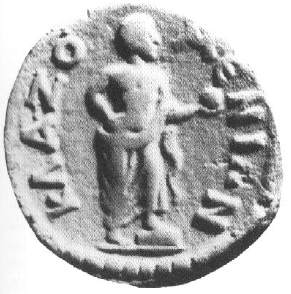
Philospher and scientist; b. c. 500 BC (Clazomenae, Anatolia), d. c. 428 BC (Lampsacus)

Anaxagoras was born on the eastern side of the Aegean Sea but moved to Athens, which was becoming the centre of Greek civilization, when he was about 20 years old. He introduced Athens to the new Ionian spirit of scientific inquiry and became a member of a group around the Athenian statesman Pericles.
Most of Anaxagoras' writings are lost, and the few surviving fragments are unclear about his detailed teaching. What can be said is that Anaxagoras started out from the Ionian idea that all matter is made up of a single basic element but found it difficult to explain movement and change on that basis. He therefore proposed many basic ingredients including not only water, air, earth and fire but living matter such as flesh and bone, bark and leaf. To account for change he declared that "there is a portion of every thing, ie of every elemental stuff, in every thing," but "each is and was most manifestly those things of which there is most in it."
When Anaxagoras approached the age of about 50, Pericles' political opponents tried to attack him by taking Anaxagoras to court for his statement that the Sun is an incandescent stone somewhat larger than the region of the Peloponnese. Pericles could divert the charge of blasphemy, but Anaxagoras had to leave Athens and went into retirement at Lampsacus.
To explain the existing world Anaxagoras invoked nous ("mind") which formed the cosmos. Originally nous acted to bring together things of like properties: Fluid congregated to form the sea, dark congregated to form the night, and so with many other elements. Today nous acts by mixing and revolving all elements.
Anaxagoras' lasting scientific achievement is the first correct explanation of solar eclipses as an alignment of Earth, Moon and Sun.